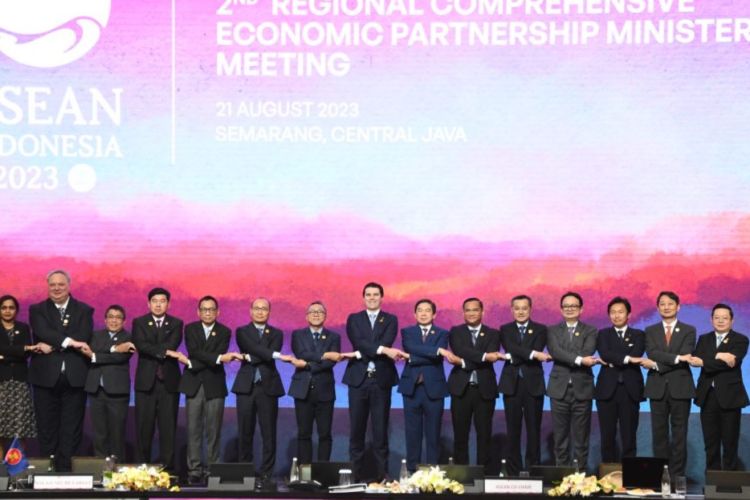
India is currently grappling with the decision of whether to join the China-led Regional Comprehensive Economic Partnership (RCEP), a trade agreement that includes 10 ASEAN members and six other nations, including China. The Indian government has expressed caution regarding membership due to concerns over exacerbating its already significant trade deficit with China, which reached over $85 billion in the fiscal year 2024. The NITI Aayog CEO, BVR Subrahmanyam, has advocated for India to join RCEP, arguing that it could enhance trade opportunities for the country. However, many policymakers fear that joining the agreement could worsen India's trade deficit, which has already been a growing concern, as evidenced by ASEAN's trade deficit with China increasing from $81.7 billion in 2020 to $135.6 billion in 2023.
Despite having free trade agreements (FTAs) with most RCEP members, India does not have one with China, which complicates its position. As India considers its trade strategy, it is also exploring alternatives such as FTAs with the UK and the EU. The influence of U.S. policies and tariffs on India's trade decisions cannot be overlooked, as the country prioritizes strategic autonomy and self-sufficiency in its economic engagements. This balancing act reflects India's broader trade strategy, which seeks to navigate the complexities of its relationships with major economies while safeguarding its national interests.
The decision on RCEP membership is not merely an economic one; it also involves considerations of geopolitical dynamics and India's position in the region. As Southeast Asia continues to strengthen its economic ties through agreements like RCEP, India must carefully weigh the potential benefits against the risks of increased dependency on China. The outcome of this deliberation will significantly shape India's future trade landscape and its role in regional economic integration. [7d5ae877]